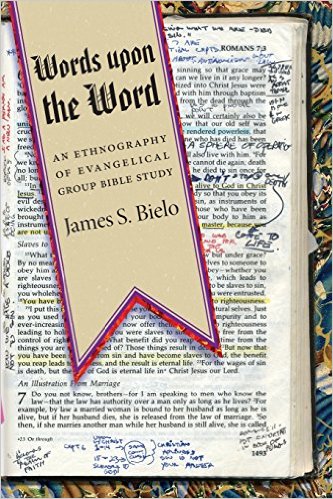I'm currently reading Words Upon the Word by James S. Bielo, an ethnography of evangelical Bible study groups in Lansing, Michigan. Last week, I looked at Bielo's introduction and the question of Bible study as a cultural institution. This week, I continue with Bielo's first chapter, in which he describes his methods for selecting and observing the Bible study groups. In the progress of his research, two issues with significances to the Emerging Scholars Network arose. The first: the varieties of meaning behind the … [Read more...] about Bielo: Answering “Are you a Christian? Are you an academic?”
james bielo
Bielo: Bible study as a social institution
The first selection in my summer research project: James S. Bielo's Words Upon the Word: An Ethnography of Evangelical Group Bible Study. This summer, inspired by T.M. Luhrmann's When God Talks Back, I am reviewing several books that provide an academic perspective on North American evangelicals. My goal is to see evangelicals through the eyes of professional academics who have made a point of studying them with academic rigor. Unfortunately, the most commonly heard "academic" opinions about evangelicals are also the … [Read more...] about Bielo: Bible study as a social institution
